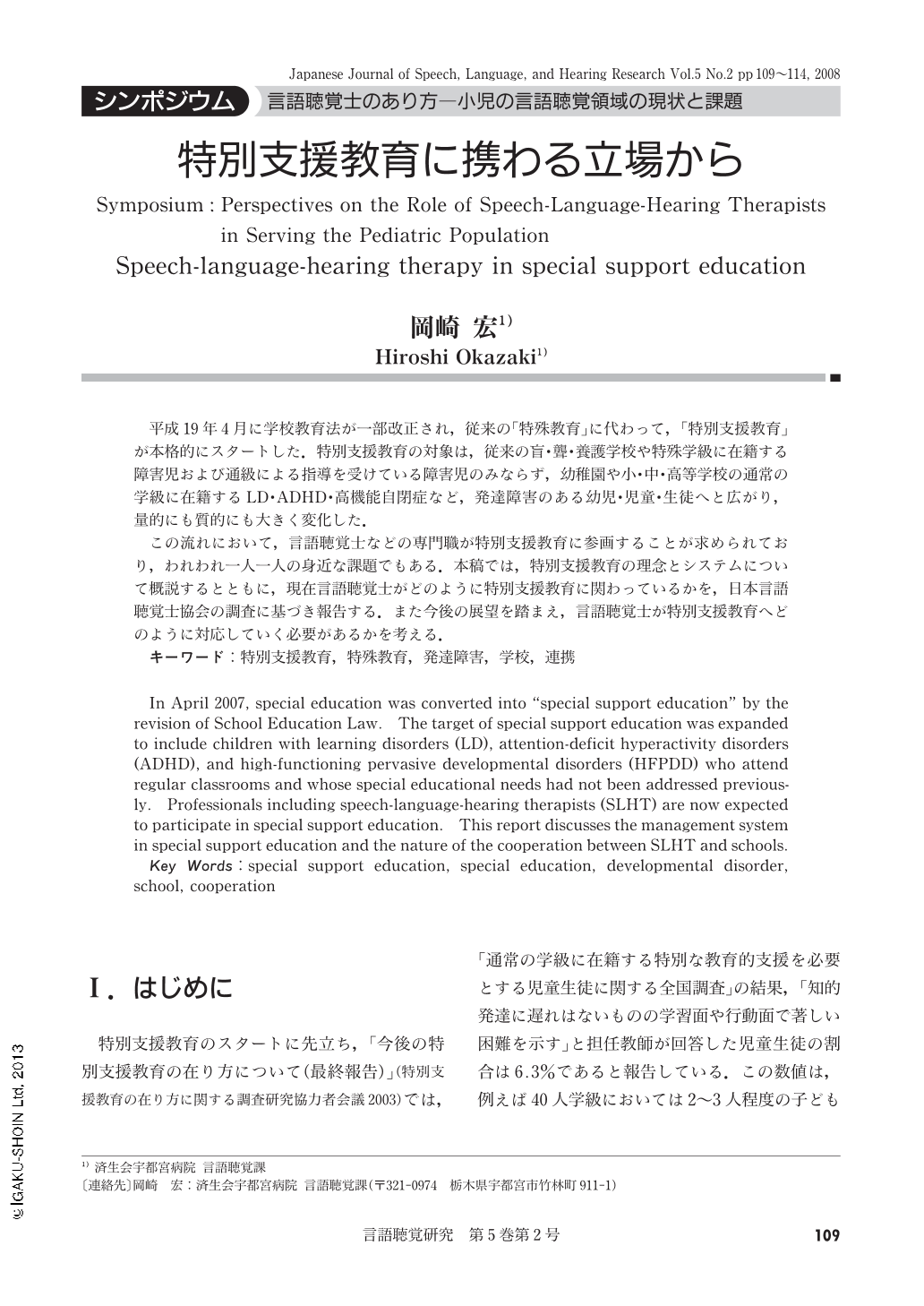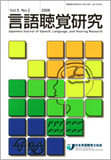Japanese
English
- 有料閲覧
- Abstract 文献概要
- 1ページ目 Look Inside
- 参考文献 Reference
- サイト内被引用 Cited by
平成19年4月に学校教育法が一部改正され,従来の「特殊教育」に代わって,「特別支援教育」が本格的にスタートした.特別支援教育の対象は,従来の盲・聾・養護学校や特殊学級に在籍する障害児および通級による指導を受けている障害児のみならず,幼稚園や小・中・高等学校の通常の学級に在籍するLD・ADHD・高機能自閉症など,発達障害のある幼児・児童・生徒へと広がり,量的にも質的にも大きく変化した.
この流れにおいて,言語聴覚士などの専門職が特別支援教育に参画することが求められており,われわれ一人一人の身近な課題でもある.本稿では,特別支援教育の理念とシステムについて概説するとともに,現在言語聴覚士がどのように特別支援教育に関わっているかを,日本言語聴覚士協会の調査に基づき報告する.また今後の展望を踏まえ,言語聴覚士が特別支援教育へどのように対応していく必要があるかを考える.
In April 2007, special education was converted into "special support education" by the revision of School Education Law. The target of special support education was expanded to include children with learning disorders (LD), attention-deficit hyperactivity disorders (ADHD), and high-functioning pervasive developmental disorders (HFPDD) who attend regular classrooms and whose special educational needs had not been addressed previously. Professionals including speech-language-hearing therapists (SLHT) are now expected to participate in special support education. This report discusses the management system in special support education and the nature of the cooperation between SLHT and schools.

Copyright © 2008, Japanese Association of Speech-Language-Hearing Therapists. All rights reserved.


